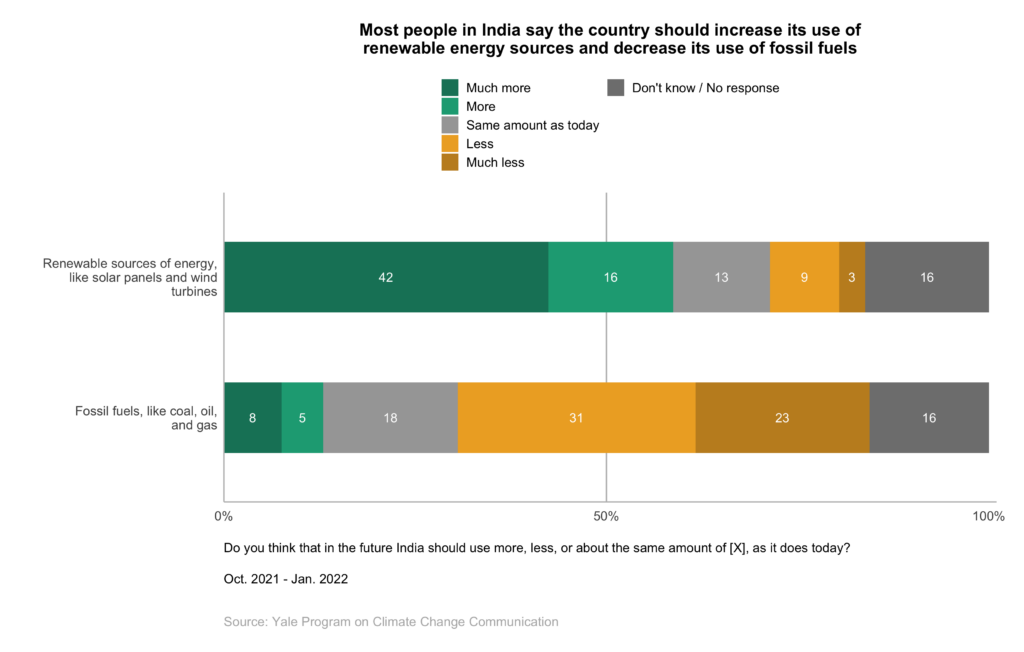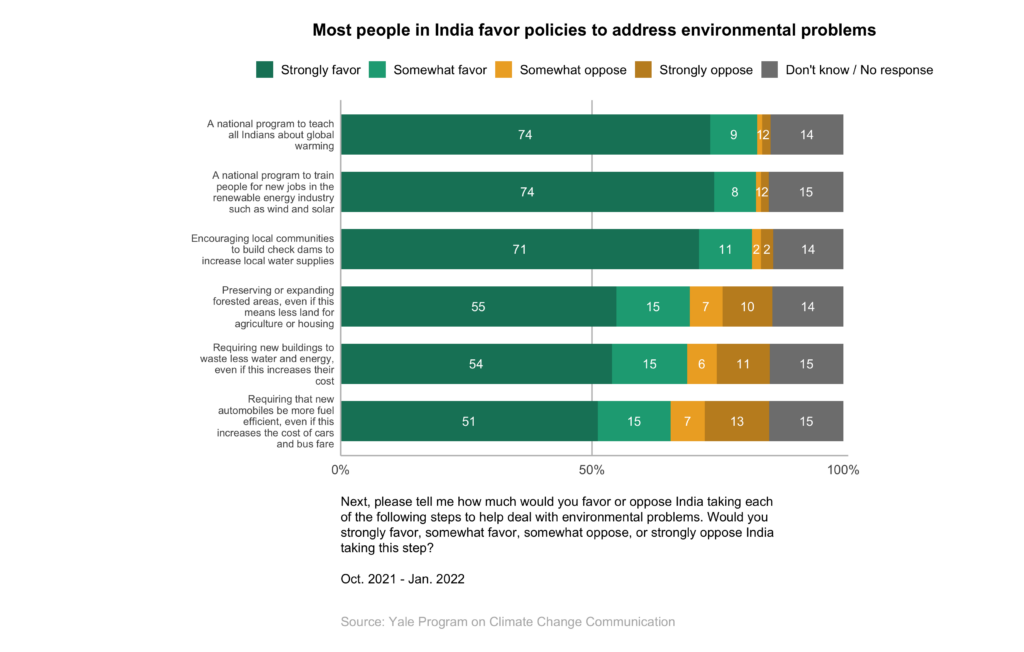Report · Oct 19, 2022
Climate Change in the Indian Mind, 2022
By Anthony Leiserowitz, Jagadish Thaker, Jennifer Carman, Liz Neyens, Seth Rosenthal, Yashwant Deshmukh, Gaura Shukla, Jennifer Marlon, Arunima Sircar and Stella Sekoff
Filed under: Behaviors & Actions and Beliefs & Attitudes
3. Support for Climate and Energy Policies
3.1 Most people in India say the country should reduce its greenhouse gas emissions without waiting for other countries to act.
More than half of people in India (55%) say India should reduce its own emissions of the gases that cause global warming immediately without waiting for other countries. In contrast, only 6% say India should reduce its own emissions only if rich countries go first, and 17% say India should reduce its own emissions only if all the other countries of the world reduce their emissions at the same time. Additionally, 8% say India should not reduce its emissions under any circumstances, while 15% say they don’t know or did not provide a response.
The percentage of people in India who say India should reduce its emissions immediately is 19 percentage points higher than in 2011, while the percentage who say India should reduce its own emissions only if rich countries go first (-11 percentage points) and the percentage who say India should not reduce its emissions under any circumstances (-5) are both lower than in 2011.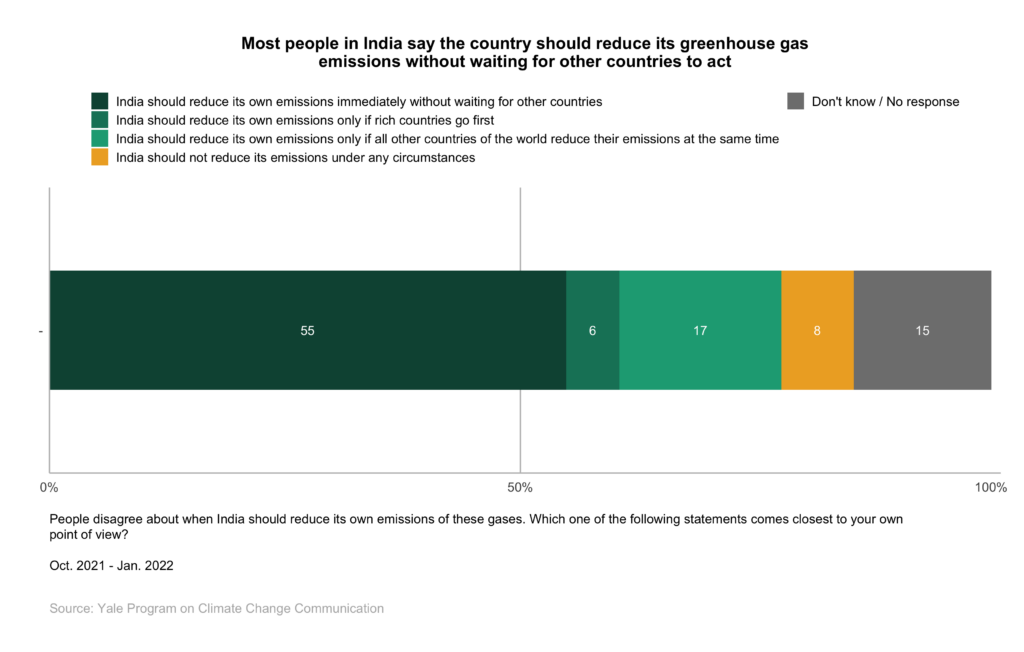
3.2 Most people in India favor policies to address environmental problems.
Large majorities of people in India either “strongly” or “somewhat” favor policies to address environmental problems in India, including the following:
- A national program to teach all Indians about global warming (83%, +13 percentage points since 2011).
- A national program to train people for new jobs in the renewable energy industry (83%; not asked previously).
- Encouraging local communities to build check dams to increase local water supplies (82%, +14).
- Preserving or expanding forested areas, even if this means less land for agriculture or housing (69%, +12).
- Requiring new buildings to waste less water and energy, even if this increases their cost (69%, +12).
- Requiring that new automobiles be more fuel efficient, even if this increases the cost of cars and bus fare (66%, +11).
3.3 A majority of people in India say the government should be doing more to address global warming.
Sixty-four percent of people in India say the government of India should be doing either “much more” (47%) or “more” (17%) to address global warming. By contrast, only 9% say the government is currently doing the right amount to address global warming, and 13% say the government should be doing either “less” (7%) or “much less” (6%) to address the issue.
The percentage of people in India who say the government of India should be doing “much more” to address global warming is 23 percentage points higher than in 2011.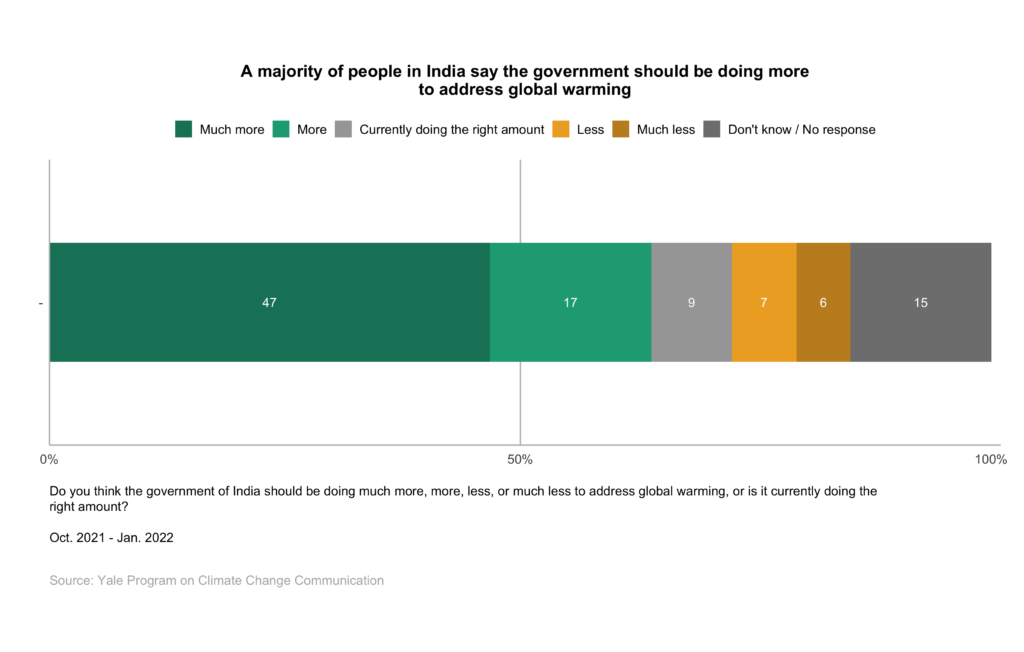 3.4 A large majority of people in India favor the country’s participation in the Paris Climate Agreement.
3.4 A large majority of people in India favor the country’s participation in the Paris Climate Agreement.
In December 2015, officials from 197 countries (nearly every country in the world) met in Paris at the United Nations Climate Change Conference and negotiated a global agreement to limit global warming. On Earth Day, April 22, 2016, India and 174 other countries signed the agreement, with all of the other countries signing soon afterwards.
A large majority of people in India (73%) favor India’s participation in the Paris Climate Agreement, including about six in ten (59%) who say they “strongly favor” it.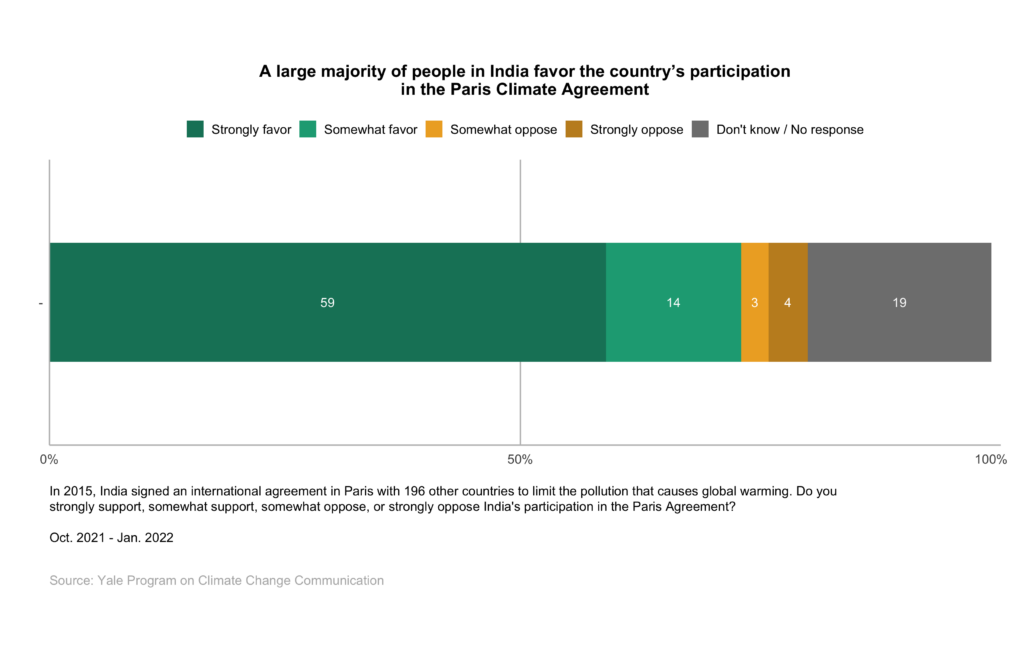 3.5 Few people in India think taking action to limit global warming will reduce economic growth.
3.5 Few people in India think taking action to limit global warming will reduce economic growth.
More than twice as many people in India think taking action to reduce global warming will improve economic growth and provide new jobs (45%) than think it will reduce economic growth and cost jobs (19%). Additionally, about one in five (17%) think taking action on global warming will have no effect on economic growth or jobs.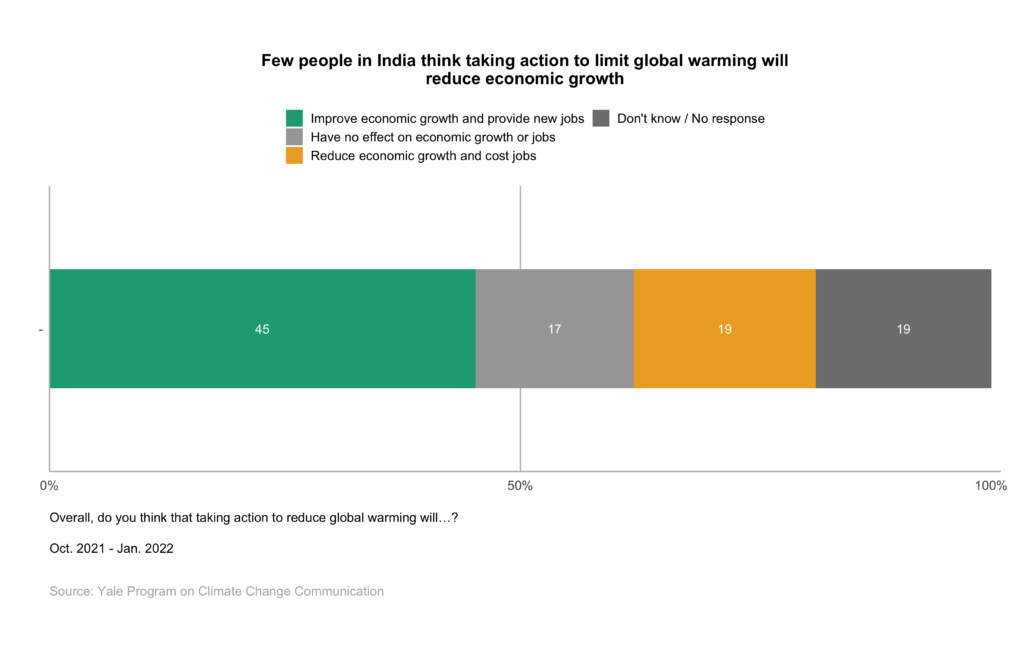 3.6 Most people in India say the country should increase its use of renewable energy sources and decrease its use of fossil fuels.
3.6 Most people in India say the country should increase its use of renewable energy sources and decrease its use of fossil fuels.
A majority of people in India (59%) say that in the future India should use either “much more” (42%) or “more” (16%) renewable sources of energy, like solar panels and wind turbines, than it does today. Relatively few respondents (12%) say India should use either “much less” (3%) or “less” (9%) renewable energy, and 13% say India should use the same amount of renewable energy as it does today.
Most respondents (54%) also say India should use “much less” (23%) or “less” (31%) fossil fuels, like coal, oil, and gas, than it does today. Few respondents (13%) say India should use “much more” (8%) or “more” (5%) fossil fuels, and 18% say India should use the same amount of fossil fuels as it does today.